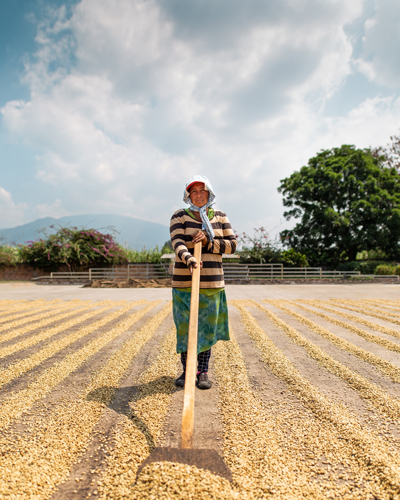What is USAID's approach to localization, and how is it evolving? Read the latest on this important topic in the article below from Donald Steinberg, USAID's Expert Advisor to the Administrator.
Expert Advisor Steinberg outlines the goals, plans, and challenges facing localization. Steinberg also discusses why localization—which has been attempted by multiple administrations—is different now, and why we are beginning to see real progress on this agenda.
The full article was originally posted on the Global Governance Forum.
Global Embrace of Localization: Changing the Power Dynamics in Development and Humanitarian Aid Systems
By Donald Steinberg
APRIL 13, 2022
Whether it is called localization, decolonizing foreign assistance, community ownership, locally led development, or any other term, the global impetus to change the power dynamics in our current development and humanitarian assistance structures has never been stronger. Simply put, stakeholders throughout the assistance ecosystem have come to the shared conclusion that their work is more effective, more resilient, and more equitable when local partners play a lead role in identifying sectors, planning programs, implementing projects, and evaluating progress.
The ground truth, credibility, accountability, and long-range time perspective these local partners bring to the table are essential for success in achieving collective objectives under the Sustainable Development Goals and the Humanitarian Grand Bargain. By contrast, the current power game where the deck is stacked to give all the trump cards to bilateral and multilateral donors, UN agencies, international nongovernmental organizations (NGOs), and development contractors must change.
In her seminal address on A New Vision for Inclusive Development at Georgetown University in November 2021, USAID Administrator Samantha Power embraced this vision and outlined her agency’s response to this imperative.
Four Lines of Effort
For Administrator Power, localization requires four principal lines of effort. First, it means channeling a larger portion of development and humanitarian awards directly to local civil society, business, and other institutions that are supported by and accountable to local communities. She pledged that 25 percent of USAID direct funding will go to these entities in the next four years—up from 6.2 percent in 2021—and that 50 percent of its projects over the next decade will put local partners in the lead to co-design projects, set priorities, drive implementation, and evaluate impact of aid programs.
These goals will be achieved by expanding existing programs such as Local Works and the New Partnerships Initiative; increasing the use of flexible, performance-based partnership tools like Fixed Amount Awards; and implementing new regional initiatives like Centroamérica Local, which will invest $300 million to expand USAID’s work with community-based partners in El Salvador, Guatemala, and Honduras over the next five years to address the root causes of irregular migration.

Second, localization means changing the power dynamics among local actors, international prime partners, and donors to ensure a seat at the table—and preferably at the head of the table—for local actors, under the principle, “Nothing about us without us.” There will be a new focus on listening to the voices of marginalized populations, including women, people with disabilities, youth, the LGBTQI+ community, Indigenous populations, displaced persons, and ethnic and religious minorities.
This effort requires international partners to display new humility and flexibility, and a willingness to adapt their systems and procedures to accommodate new and smaller partners unfamiliar with the complex application and compliance procedures, language preferences, and reporting requirements of each international partner. At USAID, one reflection of this effort is the launch of a new and simplified online entry point into the agency, WorkwithUSAID.org.
Third, USAID is adapting its planning processes to reflect a “local systems” approach tied to each country’s unique political, social, cultural, economic, and environmental conditions and targeting the drivers and barriers to change. Donors cannot come to the table with preconceived notions of sectors and regions for their assistance; instead, they must align their contributions to priorities identified by representative and accountable local partners. At USAID, this means integrating local voices into all its planning processes, and modifying its Assistance and Acquisition Strategy, Risk Appetite Statement, Policy Framework, Local Capacity Development Policy, and Partnership Principles.
Finally, Administrator Power challenged her USAID colleagues to serve as global public advocates and thought leaders for the localization agenda, using their convening authority, partnerships, voice, and power of example to persuade others to climb on the localization train. At the April 2022 Skoll World Forum, for example, Administrator Power called for a global convening this summer of stakeholders to debate, discuss, and reaffirm concrete commitments to this agenda in a power-neutral environment.
[…]
Do you have a story about how USAID's focus on localization is changing dynamics on the ground between the Agency and local organizations? Email your story idea to askzara@workwithusaid.org for a chance to be featured on the WorkwithUSAID.org News & Insights blog.
